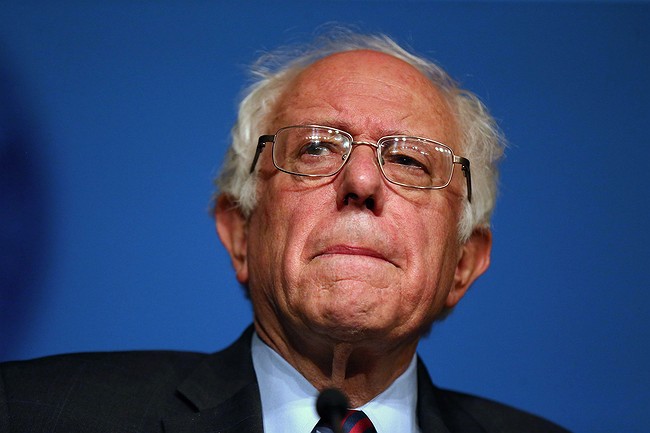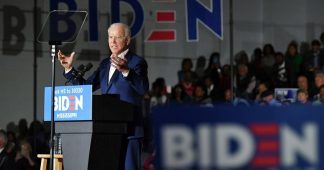By Sam Rosenthal
With the general election just around the corner, it’s a good time to look back at lessons learned from the 2022 primary cycle. For progressives, the results were a mixed bag. Many incumbent progressives successfully defended their seats and will cruise through their general elections; Congress will even welcome a few new left-leaning representatives in January. In other respects, though, the outlook for progressives is not so rosy. More than a few candidates amassed considerable financial resources and people power, only to see uninspiring incumbents squeak through to the general election. Win or lose, a common thread ran through any primary pitting a progressive candidate against a more establishment-friendly one: 2022 was the year of the outside spending earthquake in Democratic primaries.
The signs that 2022 would be a banner year for outside spending in Democratic primaries began early this year. In May, observers watched, stunned, as a hitherto mostly unknown player, Democratic Majority for Israel (DMFI), spent over $3 million to defeat Nina Turner in a special election for Ohio’s 11th congressional district. (The same group spent about $1.4 million in 2020 to defeat Bernie Sanders in his quest for the presidential nomination.)
Turner lost the election by more than 30 points, with Democratic Majority for Israel contributing nearly half of all outside spending. Thus began a grim new era for outside spending against progressive candidates. As 2022 dawned, Democratic Majority for Israel was joined by another behemoth player in the primary spending wars. AIPAC, the American Israel Public Affairs Committee, had not, despite its name, previously established PACs, or political action committees, that it used for electioneering purposes. AIPAC’s mode of exerting influence to that point had been via large donations to members of Congress in both parties and a forceful lobbying effort largely confined to the halls of Congress. However, reportedly worried about its waning influence, at the beginning of 2022, AIPAC launched a PAC called United Democracy Project, which quickly built a war chest of almost $30 million.
Throughout this year, United Democracy Project and Democratic Majority for Israel have often moved in concert in their spending on federal elections. This is no surprise; the two groups share donors, advisers and PAC staff. In January 2022, Democratic Majority for Israel released a list of its support targets for the year and quickly began pouring huge sums of money into outside spending efforts in those districts. In North Carolina, for example, Democratic Majority for Israel spent $290,131 to support Valerie Foushee in a crowded primary race that included progressive Nida Allam, a Muslim woman with a record of Palestinian rights activism. Many progressive organizations championed Allam, who received the backing of Bernie Sanders, the Sunrise Movement, Our Revolution, and others. United Democracy Project added $2.1 million to the outside spending on Foushee’s behalf in that race, and Allam lost to Foushee by nine points, coming in second in the field overall.
This pattern continued in races around the country where progressives faced off with establishment-friendly candidates whose Israel-Palestine policies aligned with AIPAC’s. Voters in these districts could be forgiven for not understanding that the candidates they saw promoted (or demonized) in ads and mailers were boosted for their strict adherence to a very particular piece of foreign policy. If you saw an attack ad commissioned by these groups, you would have heard about rising crime in Detroit, underfunded schools in North Carolina, insufficiently loyal Democrats in Pennsylvania and Ohio — but nothing about U.S. foreign policy in Israel. The goal was not to sway public opinion on Israel, but to install a group of Congress members who would reliably cast pro-Israel votes.
By the end of the 2022 primary season, candidates supported by AIPAC had won 77 percent of the time — a win rate that most electoral support organizations can only dream about. And the win rate only tells half of the story. In other races, candidates running on otherwise progressive platforms made significant changes to their stances on Israel-Palestine, in apparent attempts to avoid becoming the target of the AIPAC and Democratic Majority for Israel spending binges. This silencing effect could ultimately be the goal of all this outsize spending. By making any level of support for Palestine a major liability in election season, AIPAC and Democratic Majority for Israel may succeed in blunting the rising tide of pro-Palestinian sympathy within the Democratic Party and among members of Congress.
More pernicious, perhaps, is the way that AIPAC and its affiliates have leveraged donor enthusiasm for pro-Israel foreign policy to build a clearinghouse for anti-progressive policy. In animating an organized base of single-issue donors, AIPAC and Democratic Majority for Israel have been given virtually unlimited funds to spend carte blanche against progressive candidates as they see fit. Donors are drawn in by the organizations’ promises to combat candidates with the “wrong” line on Israeli-American relations, but in the process, they also fund the defeat of candidates who are the strongest supporters of single-payer health care, climate action and anti-corporate political reforms.
Each time AIPAC and Democratic Majority for Israel make an independent expenditure, they gain critically important information detailing exactly how much spending is required to combat the resources that progressives and supporting groups are able to muster in primary races. As Joe Dinkin, the Working Families Party’s national campaigns director, told Ryan Grim of The Intercept, progressive candidates won primary races where they were only outspent two to one, but lost in races where the amount of spending was six times or more what progressive groups were able to supply. With deep financial reserves and an apparently endless appetite for independent expenditures, AIPAC and Democratic Majority for Israel are sure to become more precise and effective in their spending approaches.
Now, as Election Day looms, it seems that AIPAC cannot let some of its losses go. In recent days, it has begun spending heavily again in Pennsylvania’s 12th District to defeat progressive State Rep. Summer Lee in the general election. That is, AIPAC is trying, through brute financial force, to install a Republican representative in a district that FiveThirtyEight rates as Democratic +15 points. Lee’s path to victory has already been complicated by the wildly improbable fact that her Republican opponent and the district’s former Democratic representative have the same name, and it’s not inconceivable that AIPAC’s outside spending could be enough to put the Republican over the top in this election. Democrats can ill afford to lose any more House seats next week, let alone one thought to be in a safe blue district, and Lee’s loss would be a catastrophe.
The damage wrought by AIPAC’s influence in this electoral cycle will leave lasting marks on the progressive movement. If progressives can’t figure out how combat the approach that AIPAC and Democratic Majority for Israel have so neatly outlined, the task of running insurgent campaigns will become infinitely harder. Meanwhile, the Democratic establishment may want to reconsider whether getting a few pesky progressive candidates off its back is really worth tolerating this level of insidious outside spending.
We remind our readers that publication of articles on our site does not mean that we agree with what is written. Our policy is to publish anything which we consider of interest, so as to assist our readers in forming their opinions. Sometimes we even publish articles with which we totally disagree, since we believe it is important for our readers to be informed on as wide a spectrum of views as possible.











